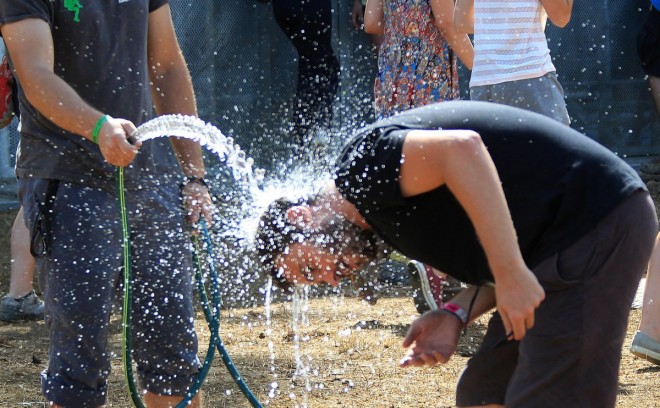-
Tips for becoming a good boxer - November 6, 2020
-
7 expert tips for making your hens night a memorable one - November 6, 2020
-
5 reasons to host your Christmas party on a cruise boat - November 6, 2020
-
What to do when you’re charged with a crime - November 6, 2020
-
Should you get one or multiple dogs? Here’s all you need to know - November 3, 2020
-
A Guide: How to Build Your Very Own Magic Mirror - February 14, 2019
-
Our Top Inspirational Baseball Stars - November 24, 2018
-
Five Tech Tools That Will Help You Turn Your Blog into a Business - November 24, 2018
-
How to Indulge on Vacation without Expanding Your Waist - November 9, 2018
-
5 Strategies for Businesses to Appeal to Today’s Increasingly Mobile-Crazed Customers - November 9, 2018
Climate Change Could Be Affecting Mortality Rates in Seniors
They found that death rates rose during periods when the average summer temperatures increased significantly and were outside the norm. For this, the researchers chose the New England area. They calculated if each year was warmer or colder than average for the zip code and checked to see if death rates were different in those years.
Advertisement
“
A rise in summer mean temperature of 1 degree C (just under 2 degrees F) was associated with a 1 percent higher death rate, whereas an increase in winter mean temperature corresponded to a 0.6 percent decrease in mortality”,
Joel Schwartz, a professor of environmental health at the Harvard Chan School of Public Health and colleagues wrote.
As temperature and precipitation patterns change, the delicate balance of climate, weather events and life is disrupted, researchers found. If many argue that climate change is one of the most serious public health threats facing the world, weighing the risk to our wellbeing is not as straightforward as one might think.
Scientists have long debated the effects of climate change on health, reports Phys.Org, and the general consensus is that more people will get sick as climate change results in flooding, polluted air, and extreme heat.
Further, the researchers observed that it was not just the steady fall or rise in temperature that impacted death rates, but the variations that take the temperature outside the average range. For each 1.8 degree shift in the average temperature during summer or winter months, 1.3% more people died. “However, there is little evidence to date on the long-term effect of temperature”.
Schwartz went on to add that variability mattered because we do not acclimatize to temperature changes fast enough.
The study notes that research has suggested it’s more hard for people to develop exercise endurance when they’re in variable temperatures compared to consistently hot conditions.
Before being taken as gospel, it should be noted that the study is geographically limited and has weaknesses.
What’s more deadly overall for people, however, are variable temperatures.
.
Also, the study only found a possible association between weather and death rates, and not a direct cause-and-effect relationship. Hosted by White House Senior Advisor Brian Deese, the roundtable discussion centered on how educators are combating the health impacts of climate change and protecting the health of future generations.
“This is clearly an important study”.
“As nurses, we are public health professionals, and we must accept the responsibility to prepare our students for the health effects of global climate change”, Sullivan-Marx said in the release.
Meanwhile, Keller said, “The big mysteries concern our adaptability to a changing climate”. The findings were reported Monday, July 13, in the journal Nature Climate Change. “What kinds of solutions will humans imagine to adapt to a changing climate, and to whom will these solutions be available?”
Advertisement
SOURCES: Liuhua Shi, graduate student, department of environmental health, Harvard T.H.





























